Moving to Virginia Guide: Discover the Old Dominion
We created this guide for moving to Virginia to help those who are in their very early stages of researching where they’d like to move. So, what exactly do you need to know before moving to Virginia? We’ve complied some of the most important items you should consider when making this big decision. According to 2020 Census data, Virginia was growing fast, with an impressive 7.9% growth in population. So, is Virginia the right state, or Commonwealth in this case, for you to move?
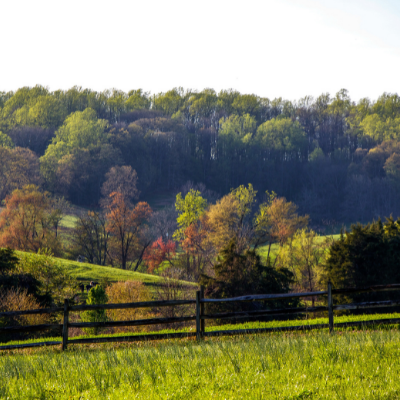
What You Need to Know about Virginia’s Geography
Virginia is a state in the mid-Atlantic Southeastern part of the U.S. that is bordered by Maryland and Washington, D.C. to the north and east, by the Atlantic Ocean to the east, by North Carolina to the south, by Tennessee to the southwest, by Kentucky to the west, and by West Virginia to the north and west. Fun fact: Virginia’s border with Maryland and Washington, D.C. extends to the low-water mark of the south shore of the Potomac River!
If you love exploring the outdoors, Virginia may be the right place for you. In fact, with an area of 42,774 square miles, Virginia can be divided into several distinct geographic regions. This includes the coastal plain between the Atlantic coast and the fall line called the Tidewater, home of the Eastern Shore and major estuaries of Chesapeake Bay. The Piedmont is another interesting geographic zone made up of sedimentary and igneous rock-based foothills. Let’s not forget the Ridge-and-Valley region west of the Appalachian mounts, home to the famous Shenandoah Valley! From the Blue Ridge Mountains, named after the blue haze of the isoprene produced by oak trees, to the scenic forests of Shenandoah, the one national park in the state, you’re sure to be inspired by Virginia’s natural beauty. The variety in the typography is just one of the many things to love about Virginia.
Virginia’s highest point is in Mount Rogers, and it stands at 5,729 ft tall. By comparison, Virginia’s lowest point is in the Atlantic Ocean, and that’s 0 ft! Speaking of high points, the Appalachian Mountains are considered Virginia’s most famous “high points,” but don’t tell the Cumberland Plateau, Cumberland Mountains, or the Allegheny Plateau that!
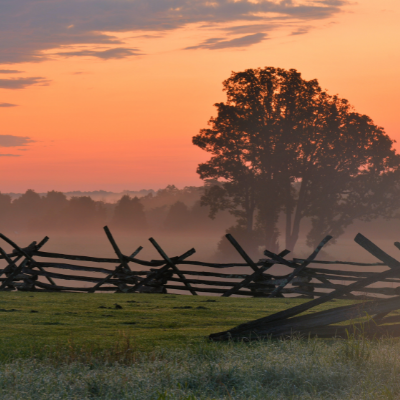
Moving to Virginia Guide on the Weather in Virginia
Virginia has a humid subtropical climate that transitions to humid continental west of the Blue Ridge Mountains. It may surprise you to learn that the Atlantic Ocean and Gulf Stream have a strong effect on eastern and southeastern coastal areas of the state, making the climate there warmer and more constant. This means that temperatures are not as low as would otherwise be expected for a northern state with predominantly high elevations! It also means thunderstorms are very common for most of the year, as are tornadoes. Hurricanes and tropical storms can hit the state, but usually only the coastal areas.
This just means monthly normal high and low temperatures really depend on where in the state you live and what season it is. Winter in Virginia is characterized by large swings in temperature throughout and between days. It may be 30 degrees and windy one morning, and 70 degrees and calm the next afternoon. Seeing as Virginia is not especially wet, snow is somewhat rare in winter, though it gets cold enough. In the summer, temperatures are hot and humid, and precipitation is slightly greater. Temperatures are not extreme, ranging between the high 70s and mid 90s; but humidity can make it seem hotter.
The state does have dangers associated with severe weather, which should be something to consider if you plan to build a home when moving to Virginia.
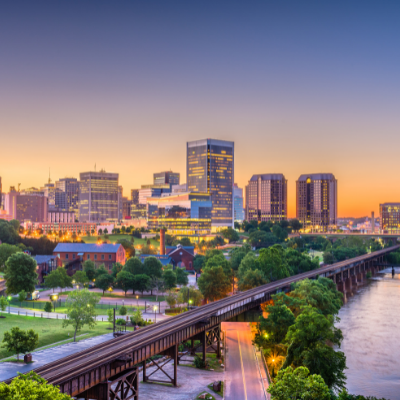
Moving to Virginia Guide on Getting a Job in the Old Dominion
If you’re looking for a place to grow your career, consider moving to Virginia! According to an article published by the Virginia Employment Commission, at the time of writing this article, the state of Virginia has seen a steady job growth rate and recovery following the pandemic. Moreover, in 2021, Virginia employers added jobs at a fast rate!
Virginia continues to add more drops, resulting in a steady unemployment rate of around 3.6%. The three top industries in the state are services, technology, and agriculture, forestry, and fishing.
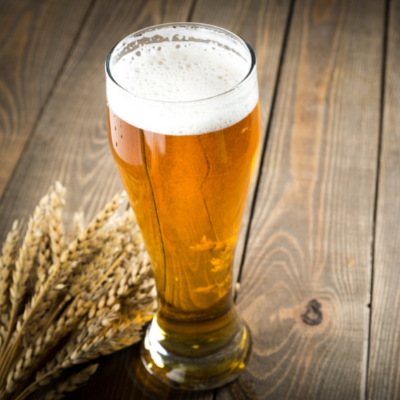
What’s the situation on buying alcohol in Virginia?
Who isn’t curious about how to toast moving to a new state! There are quite a few large wineries and breweries in Virginia in the northern part of the state, each with long histories dating back generations. Interestingly, Virginia’s state government maintains a monopoly over sales of spirits, and there are even some restrictions on when you can buy alcoholic beverages at the store. Beyond that, if you’re 21 years old or older, you are allowed to purchase and consume alcohol.
Fun fact: Virginia law permits persons under 21 years to drink if within their own home. Parents must be present when the beverages are consumed, and no persons other than their own children may be served.
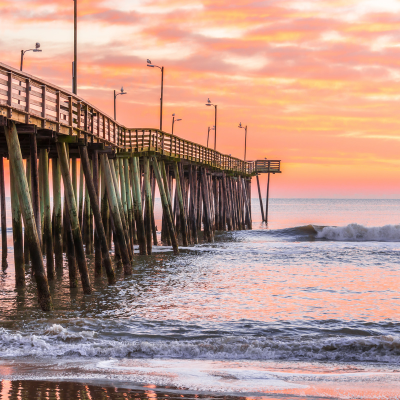
What is there to do in Virginia?
Hopefully you like history! Virginia’s nickname, the Old Dominion, references Virginia’s founding by the London Company as the first permanent English colony in the New World in 1607. That means there are over tons of historic battlefields and colonial landmarks dating back to before the country was founded that will make every weekend an adventure. Looking for something a little unique? There are also multiple county fairs and festivals across the state that might pique your interest, too!
Another choice is to head over to Richmond for culture, food, and fun. A smaller big city, Richmond still boasts a variety of fun and interesting things to do including the Virginia Museum of Fine Arts and the Edgar Allen Poe Museum. However, if you’re like us, we’re sure you’ll agree that outdoor Virginia is the best. You’ll be in awe each and everything you step outside!
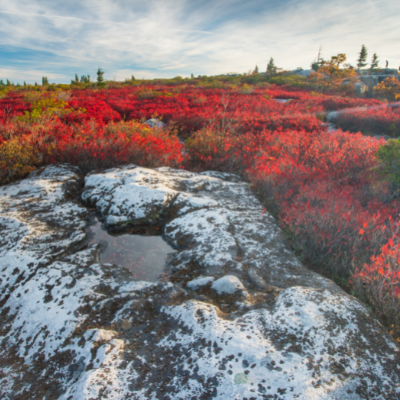
Important State Symbols in Virginia
The state of Virginia has over forty official state symbols; we’ve included a few of our favorites here. The first, and most important, is the state’s namesake – Queen Elizabeth I of England! Queen Elizabeth I of England never married, so her nickname was the “Virgin Queen.”
The state bird is the Northern Cardinal, and the flower is the American Dogwood. Another one of our favorite Virginia symbols is the state folk dance: the Square Dance. Probably the most unexpected state symbol is the state bat – the Virginia Big-Eared Bat!
Q: What is the capital of Virginia?
A: The capital of Virginia is Richmond. Richmond is also the fourth most populated city in Virginia. The Richmond metropolitan area, known as the Greater Richmond Region, has a combined population of over 1.2 million making it the third most populated metropolitan area in Virginia. If you plan to move to Virginia, you might find yourself in greater Richmond!
Q: How do Virginia’s public schools rank nationally?
A: According to a study by US News, Virginia public high schools rank 11/50 in a national breakdown tracking state-by-state high school performance. While education quality can vary widely depending on where in the state you live, this report takes the weighted average of the state’s high school performance into consideration.
Q: What kind of taxes can you expect to pay in Virginia?
A: The income tax rates in Virginia are assessed over four tax brackets: 2% on the first $3,000 of taxable income; 3% on taxable income between $3,001 and $5,000; 5% on taxable income between $5,001 and $17,000; and 5.75% on taxable income of $17.001 and above. The sales tax rate is 4.3%, and there is an additional 1% local tax on most Virginia purchases. Northern Virginia does see a bit more of a sales tax, which is something to be aware of if you move to that part of the state.
There is no state property tax as that tax is set and collected at the local government level. Tangible personal property also is taxed at the local level and is based on a percentage or percentages of original cost. Finally, Virginia does not collect inheritance taxes!
Q: What’s it like to vote in Virginia?
A: If you are a first-time voter, you must have a valid Virginia Department of Motor Vehicles driver’s license or state ID card, proof of U.S. citizenship, proof of residency, be at least 18 years old on or before the next general election, and not currently convicted of a felony or judged as mentally incapacitated and disqualified to vote. You can even register online but be sure you check the deadlines – you don’t want to miss out! You can also vote absentee, but that is a separate application.
Q: What are the rules for switching your driver’s license in Virginia?
A: If you have an out-of-state driver’s license, you’ll need to transfer it for a Virginia license as soon as possible. What you’ll need are your completed driver’s license and identification card application (available online), proof of identity, and your out-of-state driver’s license. You’ll need to take these documents with you to the DMV where you’ll need to pass a vision test, surrender your out-of-state driver’s license, pay a fee, and you’ll be good to hit the road!
Q: When do you need to update your car plates in Virginia?
A: After you have insured and titled your vehicle in Virginia, you’ll need to register it at any state DMV customer service center within 30 days of moving. The registration fee is determined by the empty weight or gross weight of your vehicle; the type of license plate you purchase; and the period of time, one or two years, you choose to register your vehicle.
Q: What’s it like driving in Virginia?
A: Like most state, the driving conditions in Virginia are very different in urban and rural areas. Thankfully, Virginia, in a tie with Illinois, ranked at number 45 as the state with the worst drivers in America. Now, that doesn’t mean Virginia drivers are perfect – just be sure you stay focused on the road!
Q: Does Virginia have any walkable cities?
A: Of all cities in Virginia, the best bet for having a walkable lifestyle is going to be in some of the small historic towns, but even that’s going to be difficult. These cities tend to have minimal public transportation, but they are usually somewhat bikeable. The most walkable Virginia cities are Richmond, Charlottesville, and Lexington.
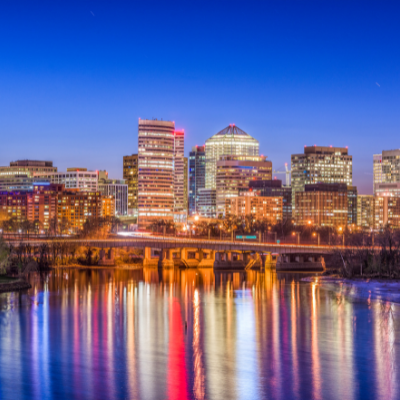
Is Virginia the Right State for You to Move?
For those of you looking for outdoor adventure, while still enjoying the creature comforts of city living, Virginia (and specifically Greater Richmond or Northern Virginia) may be the right fit for you. The beautiful typography of Virginia and booming economy all lend themselves into making life great in the Old Dominion. However, natural disasters like severe weather and semi-manageable taxes prove that while exceptional, Virginia isn’t perfect.



